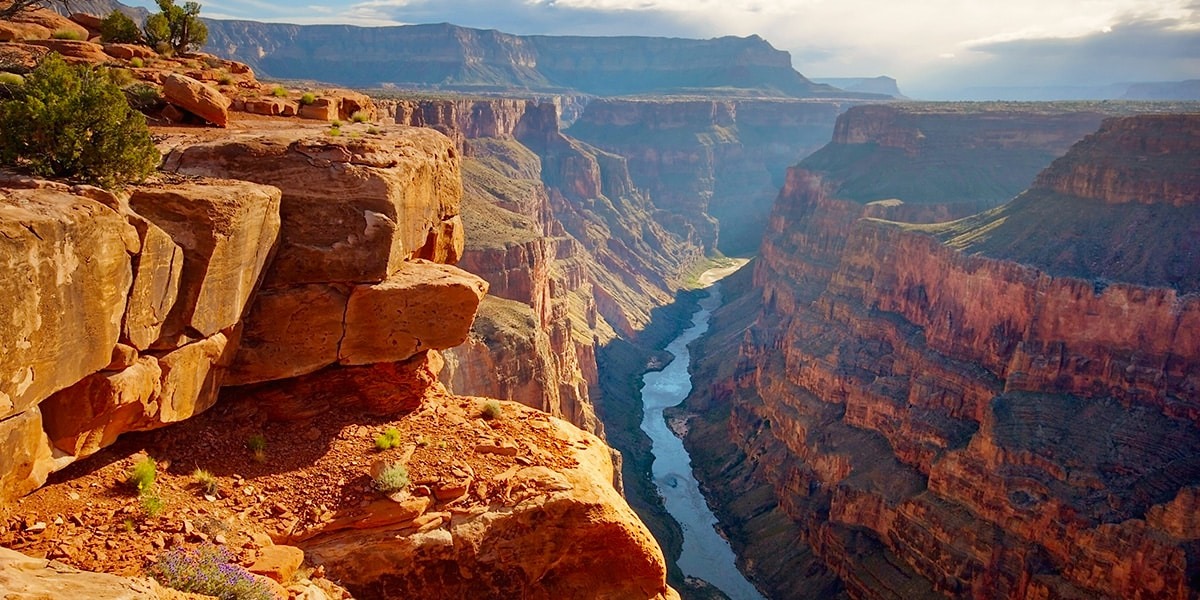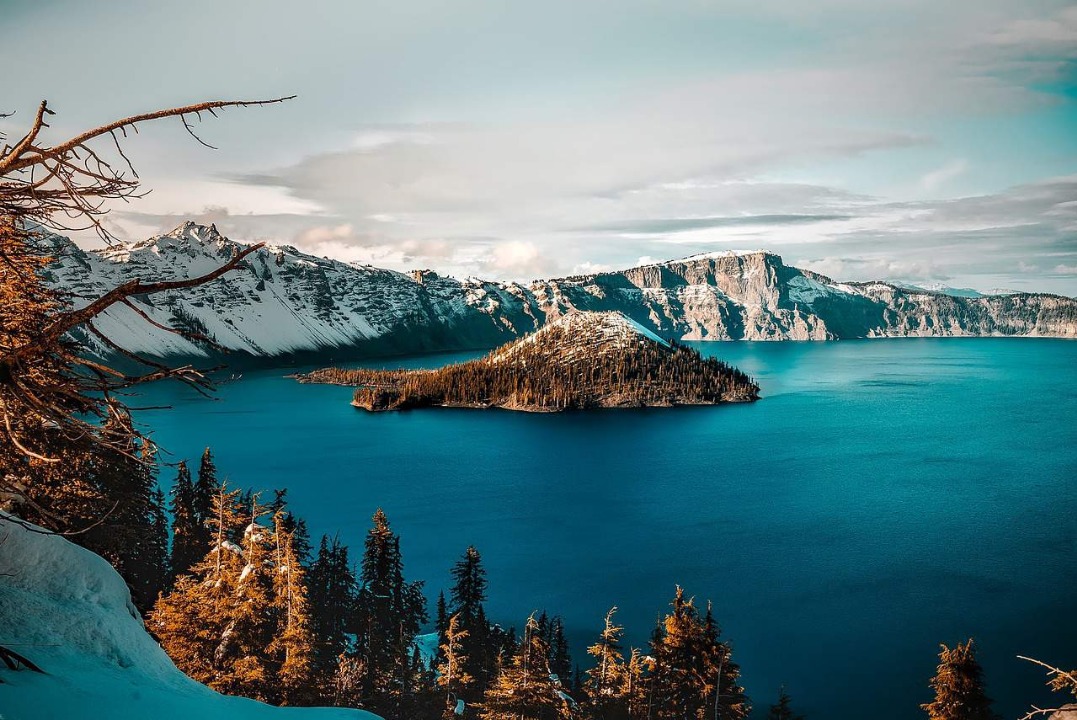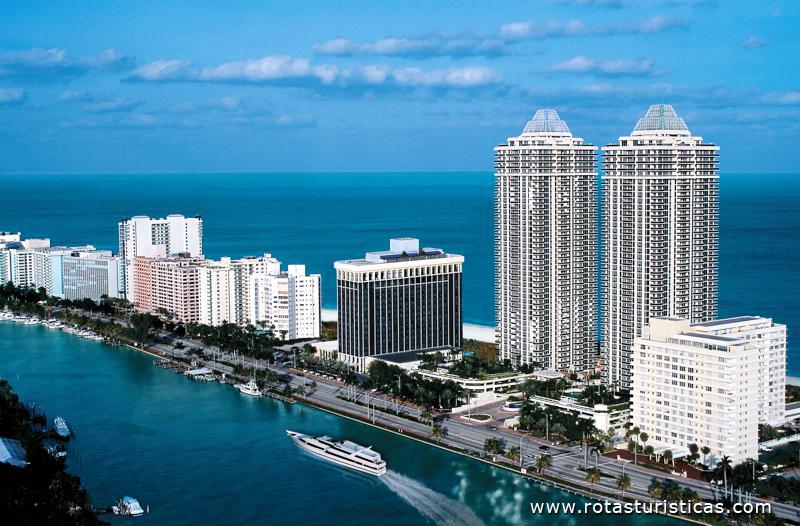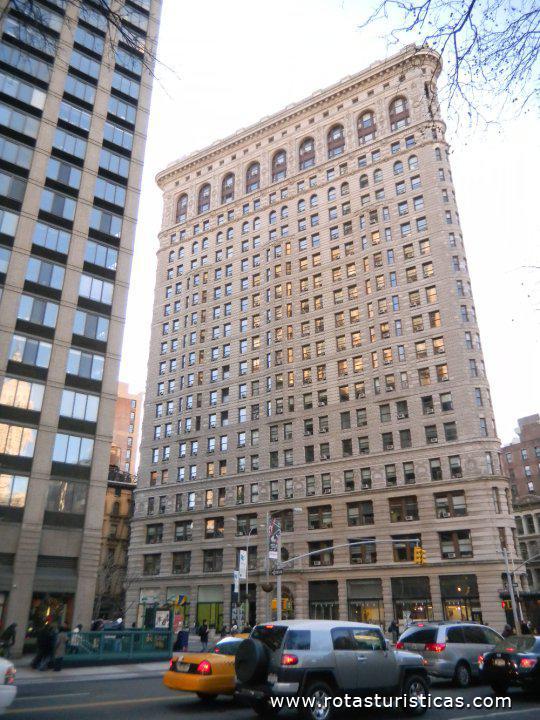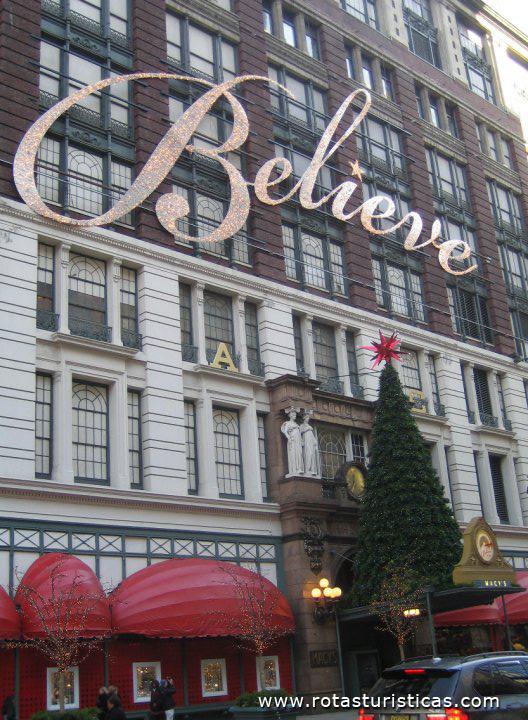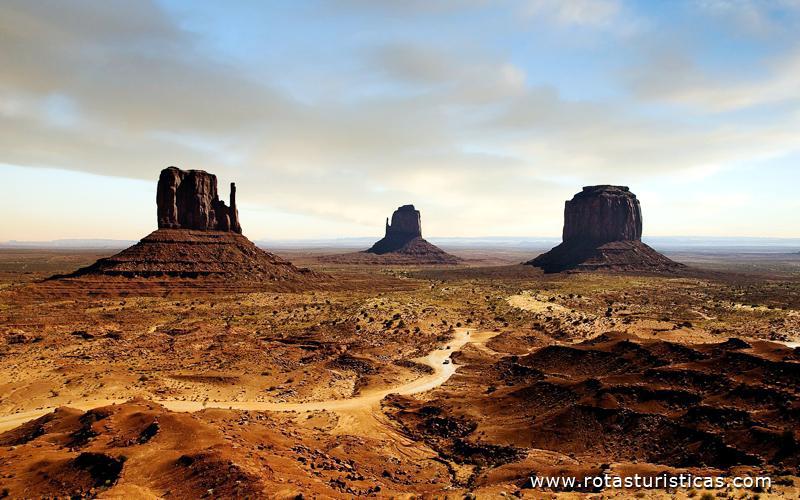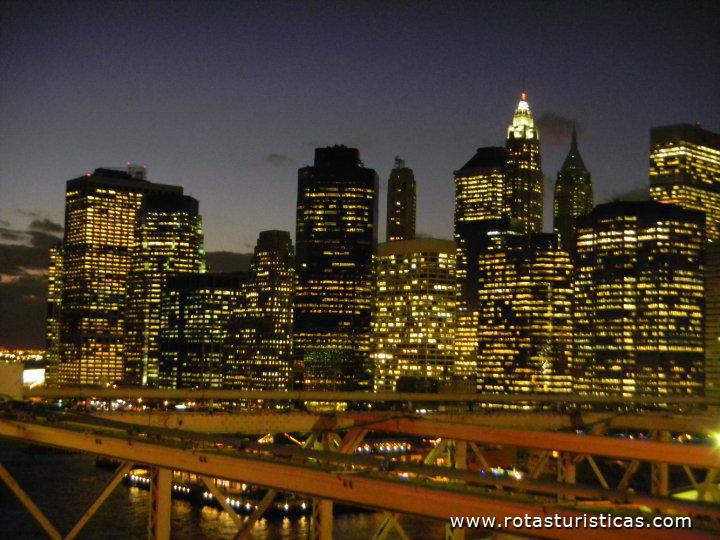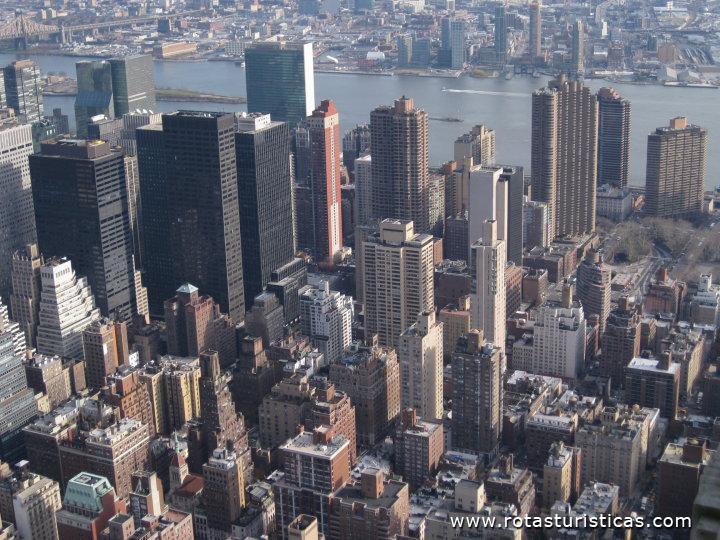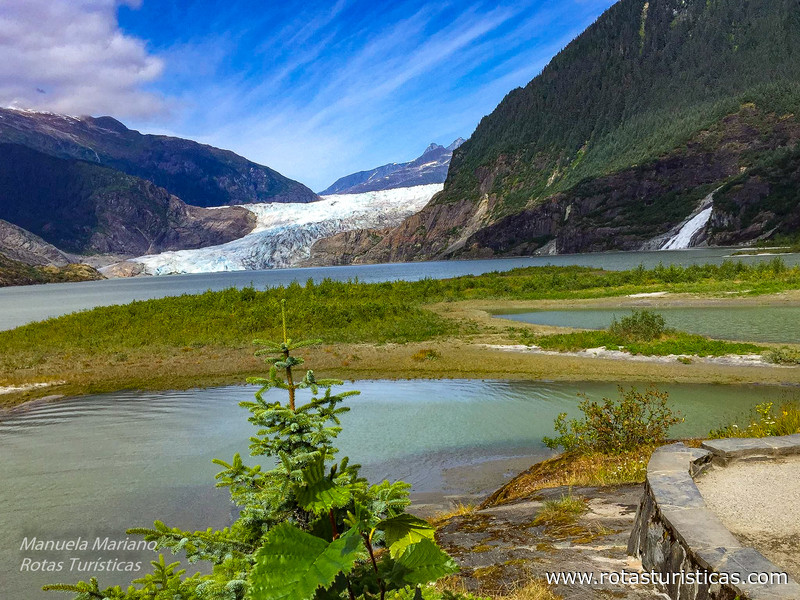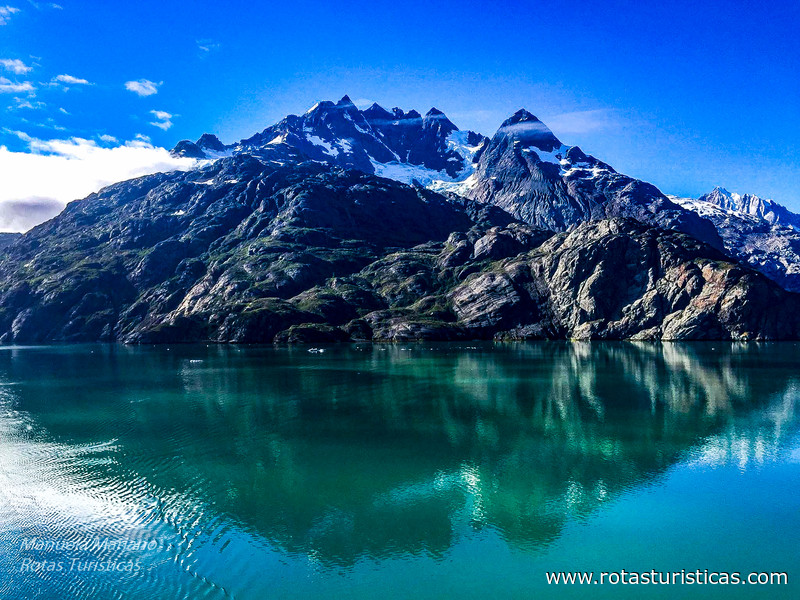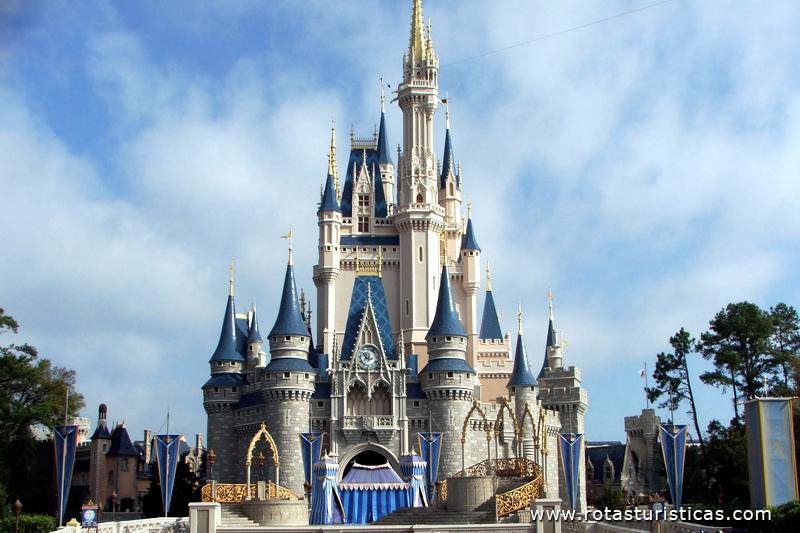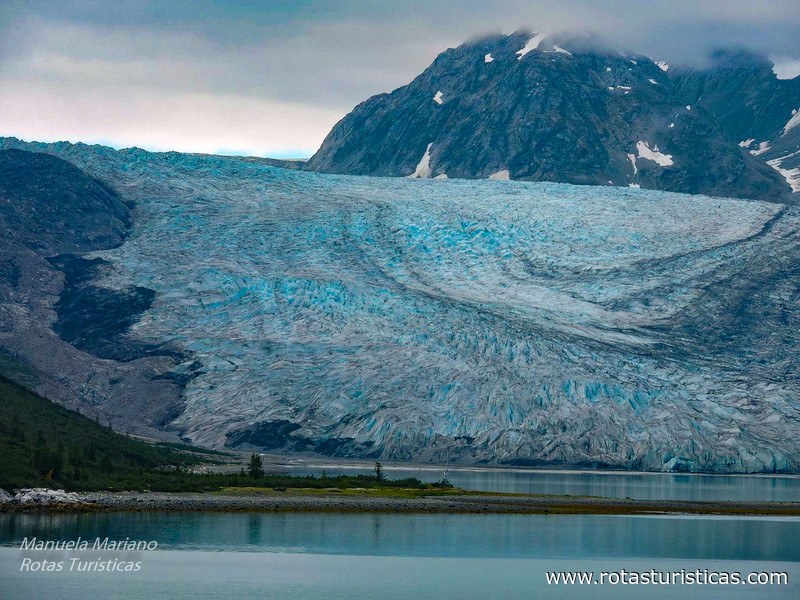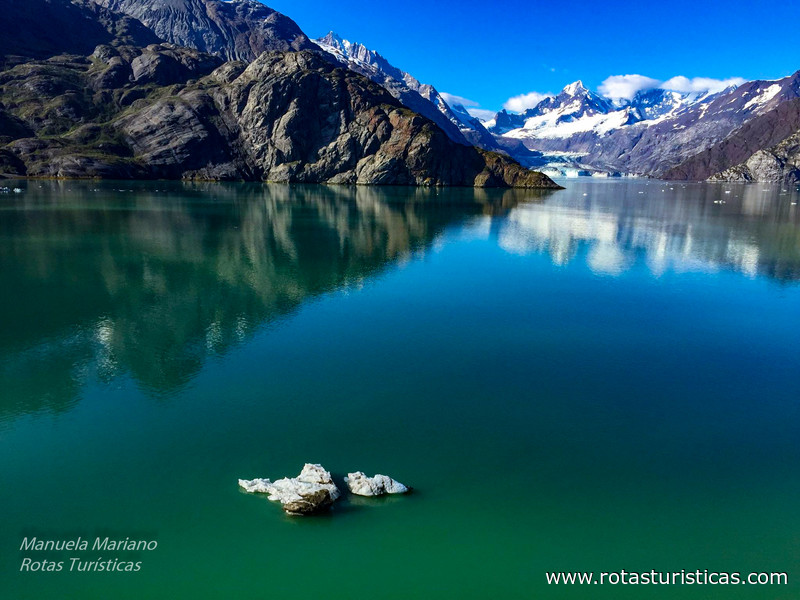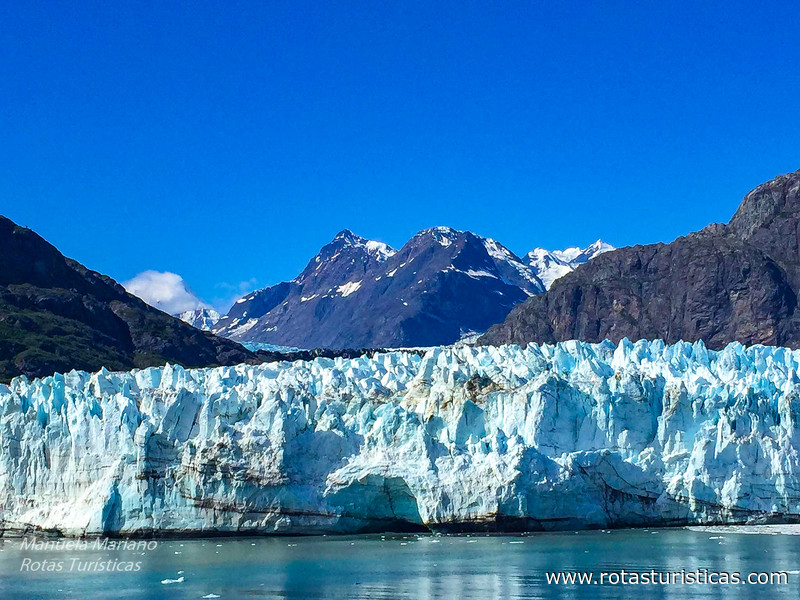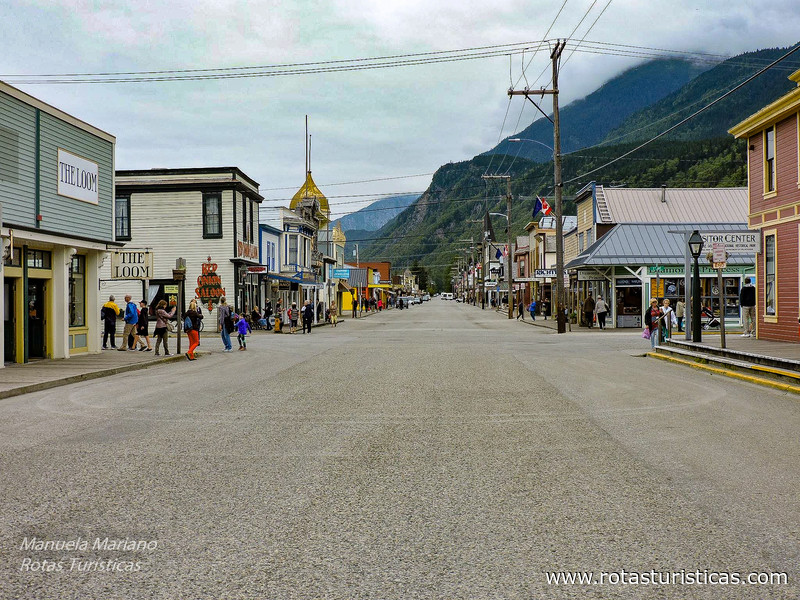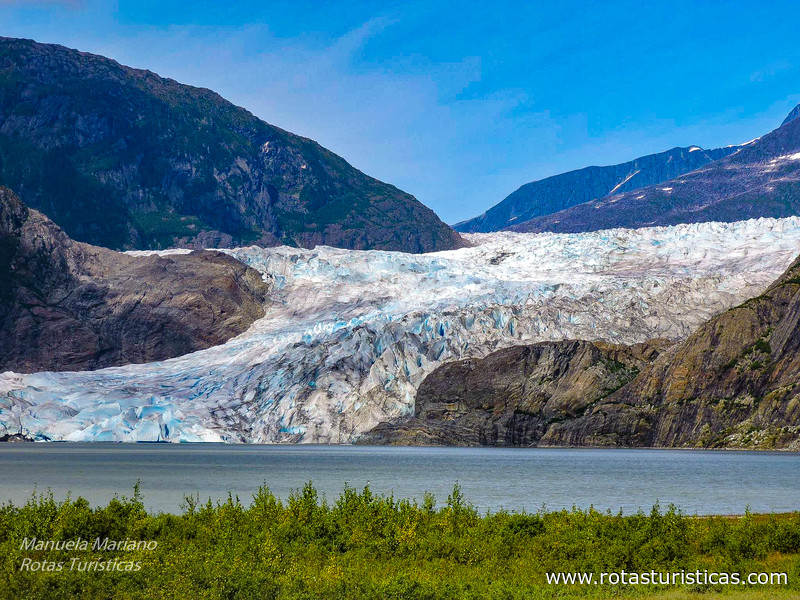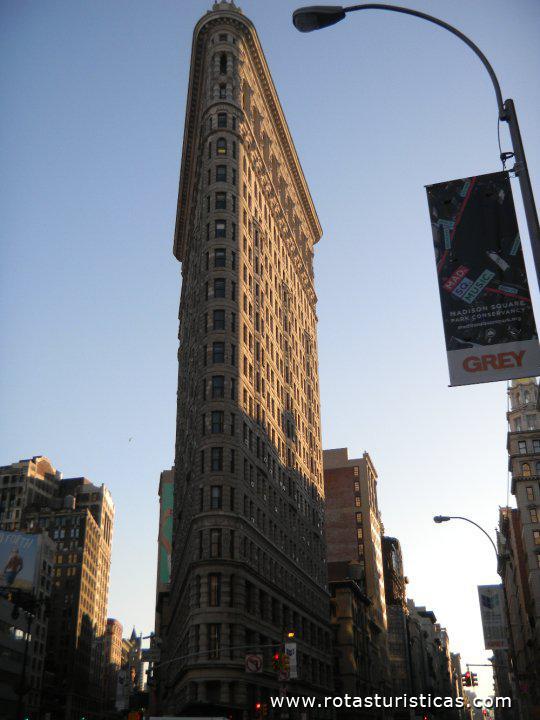Pictures of: United States of America
Location map
Airports
Hotels and other Accommodation
Golf Courses
What to visit
Where to Eat
Where to have fun
Consulates & Embassies
World Nomads
The Travel Insurance with the largest coverage

The Travel Insurance with the largest coverage

United States of America
The United States of America, usually referred to as the United States, America, or simply, is a federal republic consisting of 50 states and a federal district, of which 48 states are contiguous and the Federal District of Washington , DC, which are in central North America between Canada and Mexico.
The state of Alaska lies northwest of North America and the state of Hawaii is an archipelago in the middle of the Pacific. The country also has five depopulated territories and nine in the Caribbean in the Pacific.
It is a nation of the most ethnically diverse and multi cultural in the world. The geography and climate of the United States is also extremely diverse, and where there is a wide variety of wildlife.
The state of Alaska lies northwest of North America and the state of Hawaii is an archipelago in the middle of the Pacific. The country also has five depopulated territories and nine in the Caribbean in the Pacific.
It is a nation of the most ethnically diverse and multi cultural in the world. The geography and climate of the United States is also extremely diverse, and where there is a wide variety of wildlife.
Official language
American English
Currency
Dollar
tourism
Natural scenery
From the spectacular glaciers of Alaska to the woody, resilient peaks of the Appalachians; from the supernatural desert of the Southwest to the vast waters of the Great Lakes; few other countries have as wide a range of natural settings as the United States.
The National Parks of America are a great place to start. Yellowstone National Park was the first true National Park in the world, and remains one of the most famous, but there are other 57. The Grand Canyon is possibly the most spectacular gorge in the world; Sequoia National Park and Yosemite National Park house the largest living organisms in the world, the Giant Sequoia; Redwood National Park has the tallest, the Redwood Coast; Glacier National Park is home to majestic mountains carved out of the glacier; The Canyon National Park can easily be mistaken for Mars; and the Great Smoky Mountains National Park features abundant wildlife among beautifully forested mountains. And the national parks are not just for sightseeing, either; each has many outdoor activities as well.
These are not your only options, though. Many of America's natural treasures can be seen without passing through the gates of admission. The world-famous Niagara Falls lie on the border between Canada and the US; the American side allows it to arrive next to the "onrush" and feel the power that shaped the Niagara Gorge. The "purple majesty" of the Rocky Mountains can be seen for hundreds of miles in any direction, while the placid coastal areas of the Midwest and Mid-Atlantic relax Americans for generations. And although they are very different from each other, Hawaii and Alaska are perhaps the two most scenic states.
Historical attractions
The continent's prehistory may indeed be a little difficult to discover, since most Native American tribes did not build permanent settlements. But particularly in the West, you will find magnificent cliff dwellings in places like Mesa Verde, as well as almost omnipresent cave paintings. The American Indian Museum in Washington, D.C., is another great place to start learning about American culture before the arrival of European settlers.
As the first part of the country to be colonized by Europeans, the eastern states of New England, the Mid-Atlantic, and the South have more than their fair share of places in early American history. The first successful British colony on the continent was in Jamestown, Virginia, although the settlement in Plymouth, Massachusetts, may seem larger in the mind of the country.
Monuments and architecture
Americans have never shied away from the heroic deeds of engineering, and many of them are among the country's biggest tourist attractions.
From the spectacular glaciers of Alaska to the woody, resilient peaks of the Appalachians; from the supernatural desert of the Southwest to the vast waters of the Great Lakes; few other countries have as wide a range of natural settings as the United States.
The National Parks of America are a great place to start. Yellowstone National Park was the first true National Park in the world, and remains one of the most famous, but there are other 57. The Grand Canyon is possibly the most spectacular gorge in the world; Sequoia National Park and Yosemite National Park house the largest living organisms in the world, the Giant Sequoia; Redwood National Park has the tallest, the Redwood Coast; Glacier National Park is home to majestic mountains carved out of the glacier; The Canyon National Park can easily be mistaken for Mars; and the Great Smoky Mountains National Park features abundant wildlife among beautifully forested mountains. And the national parks are not just for sightseeing, either; each has many outdoor activities as well.
These are not your only options, though. Many of America's natural treasures can be seen without passing through the gates of admission. The world-famous Niagara Falls lie on the border between Canada and the US; the American side allows it to arrive next to the "onrush" and feel the power that shaped the Niagara Gorge. The "purple majesty" of the Rocky Mountains can be seen for hundreds of miles in any direction, while the placid coastal areas of the Midwest and Mid-Atlantic relax Americans for generations. And although they are very different from each other, Hawaii and Alaska are perhaps the two most scenic states.
Historical attractions
The continent's prehistory may indeed be a little difficult to discover, since most Native American tribes did not build permanent settlements. But particularly in the West, you will find magnificent cliff dwellings in places like Mesa Verde, as well as almost omnipresent cave paintings. The American Indian Museum in Washington, D.C., is another great place to start learning about American culture before the arrival of European settlers.
As the first part of the country to be colonized by Europeans, the eastern states of New England, the Mid-Atlantic, and the South have more than their fair share of places in early American history. The first successful British colony on the continent was in Jamestown, Virginia, although the settlement in Plymouth, Massachusetts, may seem larger in the mind of the country.
Monuments and architecture
Americans have never shied away from the heroic deeds of engineering, and many of them are among the country's biggest tourist attractions.
Gastronomy
The variety of restaurants throughout the U.S. is remarkable.
While many types of food are unchanged throughout the United States, there are a few distinct regional varieties of food. The most notable is in the South, where traditional local fare includes grits (ground maize porridge), collard greens (a boiled vegetable, often flavored with ham and a dash of vinegar), sweet iced tea, barbecue (not unique to this region, but best and most common here), catfish (served deep-fried with a breadcrumb coating), cornbread, okra, and gumbo (a stew of seafood or sausage, rice, okra, and sometimes tomatoes).
Barbecue, BBQ, or barbeque is a delicious American specialty. At its best, it's beef brisket, ribs, or pork shoulder slowly wood smoked for hours. Ribs are served as as a whole- or half-rack or cut into individual ribs, brisket is usually sliced thin, and the pork shoulder can be shredded ("pulled pork") or chopped ("chopped pork"). Sauce of varying spiciness may be served on the dish, or provided on the side. Various parts of the U.S. have unique styles of barbecue.
With a rich tradition of immigration, America has a wide variety of ethnic foods; everything from Ethiopian cuisine to Laotian food is available in major cities with large immigrant populations.
Chinese food is widely available and adjusted to American tastes. Japanese sushi, Vietnamese, and Thai food have also been adapted for the American market in recent years. Fusion cuisine combines Asian ingredients and techniques with more traditional American presentation. Indian food outlets are available in most major U.S. cities and towns.
Mexican/Hispanic/Tex-Mex food is very popular, but again in a localized version. Combining in various ways beans, rice, cheese, and spiced beef or chicken with round flatbread loaves called tortillas, dishes are usually topped with spicy tomato salsa, sour cream, and an avocado-based dip called guacamole.
Italian food is perhaps the only cuisine that rivals Mexican for widespread popularity. All manners of pasta can be found here, and American-styled pizzas (typically topped with tomato sauce and cheese, in addition to other meats and vegetables) are a popular choice for social events and casual dining.
Middle Eastern and Greek foods are also becoming popular in the United States. The gyro (known as "doner kebab" or "schawarma" in Europe) is a popular Greek sandwich of sliced processed lamb on a pita bread topped with lettuce, tomatoes and a yogurt-cucumber sauce. Hummus (a ground chickpea dip/spread) and baklava pastries are frequently found in supermarkets, along with an increasingly widespread and high-quality array of "pita" products.
While many types of food are unchanged throughout the United States, there are a few distinct regional varieties of food. The most notable is in the South, where traditional local fare includes grits (ground maize porridge), collard greens (a boiled vegetable, often flavored with ham and a dash of vinegar), sweet iced tea, barbecue (not unique to this region, but best and most common here), catfish (served deep-fried with a breadcrumb coating), cornbread, okra, and gumbo (a stew of seafood or sausage, rice, okra, and sometimes tomatoes).
Barbecue, BBQ, or barbeque is a delicious American specialty. At its best, it's beef brisket, ribs, or pork shoulder slowly wood smoked for hours. Ribs are served as as a whole- or half-rack or cut into individual ribs, brisket is usually sliced thin, and the pork shoulder can be shredded ("pulled pork") or chopped ("chopped pork"). Sauce of varying spiciness may be served on the dish, or provided on the side. Various parts of the U.S. have unique styles of barbecue.
With a rich tradition of immigration, America has a wide variety of ethnic foods; everything from Ethiopian cuisine to Laotian food is available in major cities with large immigrant populations.
Chinese food is widely available and adjusted to American tastes. Japanese sushi, Vietnamese, and Thai food have also been adapted for the American market in recent years. Fusion cuisine combines Asian ingredients and techniques with more traditional American presentation. Indian food outlets are available in most major U.S. cities and towns.
Mexican/Hispanic/Tex-Mex food is very popular, but again in a localized version. Combining in various ways beans, rice, cheese, and spiced beef or chicken with round flatbread loaves called tortillas, dishes are usually topped with spicy tomato salsa, sour cream, and an avocado-based dip called guacamole.
Italian food is perhaps the only cuisine that rivals Mexican for widespread popularity. All manners of pasta can be found here, and American-styled pizzas (typically topped with tomato sauce and cheese, in addition to other meats and vegetables) are a popular choice for social events and casual dining.
Middle Eastern and Greek foods are also becoming popular in the United States. The gyro (known as "doner kebab" or "schawarma" in Europe) is a popular Greek sandwich of sliced processed lamb on a pita bread topped with lettuce, tomatoes and a yogurt-cucumber sauce. Hummus (a ground chickpea dip/spread) and baklava pastries are frequently found in supermarkets, along with an increasingly widespread and high-quality array of "pita" products.
Weather
The climate is generally temperate, with a few exceptions. Alaska is cold and dominated by Arctic tundra, while Hawaii and South Florida are tropical. The Great Plains are dry, flat, turning into arid desert in the far west and Mediterranean, along the California coast.
In winter, the major northern and midwestern cities may have 61 cm of snow on days with cold temperatures.
Summers are humid, but mild. Temperatures above 100 ° F (38 ° C) sometimes invade the Midwest and the Great Plains. Some areas in the northern plains may experience cold temperatures of -30 ° F (-34 ° C) during the winter. Temperatures below 0 ° F (-18 ° C) can sometimes reach as far south as Oklahoma.
The climate of the South also varies. In summer, it is hot and humid, but from October to April, the weather can range from 60 ° F (15 ° C) for short periods of 20 ° F (-7 ° C) or less.
The Great Plains and Midwest states also experience tornadoes from late spring to early fall, first in the south, and later in the north. The US along the Atlantic coast and Gulf of Mexico may experience hurricanes between June and November, with intense and dangerous storms.
The Rocky Mountains are cold and snowy. Some parts of the Rocky Mountains even have more than 500 inches (12 m) of snow per season. Even during summer, temperatures are cool in the mountains and snow can fall almost all year round.
Southwest deserts are hot and dry during the summer, with temperatures often above 100 ° F (38 ° C). Thunderstorms can be expected in the southwest frequently from July to September. Winters are mild, and snow is almost nonexistent. The average annual rainfall is low, generally less than 10 inches (25 cm).
Cool and moist weather is common on the northwest coast (Oregon and Washington west of the Cascade Range, and part of Northern California, west of Cascades). Rain is more frequent in winter, snow is rare, especially along the coast, and extreme temperatures are not common. The rain falls almost exclusively from late fall until early spring along the coast. To the east of Cascades, the northwest is considerably drier. More of eastern Oregon and a substantial part of eastern Washington are either semi-arid or desert.
Northeast and upper South cities are known for summers with temperatures reaching in the 90s (32 ° C) or more, with extremely high humidity, generally above 80%. This can be a drastic change from the Southwest. High humidity means that the temperature may feel warmer than the actual readings.
In winter, the major northern and midwestern cities may have 61 cm of snow on days with cold temperatures.
Summers are humid, but mild. Temperatures above 100 ° F (38 ° C) sometimes invade the Midwest and the Great Plains. Some areas in the northern plains may experience cold temperatures of -30 ° F (-34 ° C) during the winter. Temperatures below 0 ° F (-18 ° C) can sometimes reach as far south as Oklahoma.
The climate of the South also varies. In summer, it is hot and humid, but from October to April, the weather can range from 60 ° F (15 ° C) for short periods of 20 ° F (-7 ° C) or less.
The Great Plains and Midwest states also experience tornadoes from late spring to early fall, first in the south, and later in the north. The US along the Atlantic coast and Gulf of Mexico may experience hurricanes between June and November, with intense and dangerous storms.
The Rocky Mountains are cold and snowy. Some parts of the Rocky Mountains even have more than 500 inches (12 m) of snow per season. Even during summer, temperatures are cool in the mountains and snow can fall almost all year round.
Southwest deserts are hot and dry during the summer, with temperatures often above 100 ° F (38 ° C). Thunderstorms can be expected in the southwest frequently from July to September. Winters are mild, and snow is almost nonexistent. The average annual rainfall is low, generally less than 10 inches (25 cm).
Cool and moist weather is common on the northwest coast (Oregon and Washington west of the Cascade Range, and part of Northern California, west of Cascades). Rain is more frequent in winter, snow is rare, especially along the coast, and extreme temperatures are not common. The rain falls almost exclusively from late fall until early spring along the coast. To the east of Cascades, the northwest is considerably drier. More of eastern Oregon and a substantial part of eastern Washington are either semi-arid or desert.
Northeast and upper South cities are known for summers with temperatures reaching in the 90s (32 ° C) or more, with extremely high humidity, generally above 80%. This can be a drastic change from the Southwest. High humidity means that the temperature may feel warmer than the actual readings.
Documentation
A citizen of a foreign country who wishes to enter the United States generally must first obtain a visa, be it a nonimmigrant visa for temporary stay, or an immigrant visa for permanent residence. The type of visa you must have is defined by the immigration law and relates to the purpose of your trip. Having a US visa allows you to travel to an entry point (airport, for example) and apply for permission from the Department of Homeland Security and the Customs Immigration Officer to enter the US. A visa does not guarantee entry into the United States.
Visitor Visitor
Visitor visas are a type of nonimmigrant visa for people who wish to temporarily enter the United States for business (B-1) or for leisure, tourism, or medical treatment (B-2). International travelers with visitor visas comprise a large part of the temporary travel of visitors to the United States each year.
The Visa Waiver Program (VWP) allows citizens of certain countries to travel to the United States for tourism or business for stays of 90 days or less without obtaining a visa.
NOTE:
All travelers must have individual passports. It is not acceptable (for the visa waiver scheme) that children be included in the parents' passport.
What documents will be needed?
Mandatory compliance of the Electronic Travel Authorization System (ESTA) requirement for VWP travelers is in place. Therefore, VWP travelers who have not obtained ESTA approval must expect denied boarding on any air carrier bound for the United States.
A valid ESTA approval is required for the entire Visa Waiver Program (VWP) to travel to the United States. The Department of Homeland Security, Electronic System for Travel Authorization (ESTA), is a free automated system used to determine the eligibility of visitors to travel to the United States under the VWP.
ESTA requests can be submitted at any time before the trip. An ESTA authorization will usually be valid for up to two years. Authorizations will be valid for multiple entries in the United States. The DHS recommends that travelers submit an application from ESTA as soon as they begin to make travel plans.
Visitor Visitor
Visitor visas are a type of nonimmigrant visa for people who wish to temporarily enter the United States for business (B-1) or for leisure, tourism, or medical treatment (B-2). International travelers with visitor visas comprise a large part of the temporary travel of visitors to the United States each year.
The Visa Waiver Program (VWP) allows citizens of certain countries to travel to the United States for tourism or business for stays of 90 days or less without obtaining a visa.
NOTE:
All travelers must have individual passports. It is not acceptable (for the visa waiver scheme) that children be included in the parents' passport.
What documents will be needed?
Mandatory compliance of the Electronic Travel Authorization System (ESTA) requirement for VWP travelers is in place. Therefore, VWP travelers who have not obtained ESTA approval must expect denied boarding on any air carrier bound for the United States.
A valid ESTA approval is required for the entire Visa Waiver Program (VWP) to travel to the United States. The Department of Homeland Security, Electronic System for Travel Authorization (ESTA), is a free automated system used to determine the eligibility of visitors to travel to the United States under the VWP.
ESTA requests can be submitted at any time before the trip. An ESTA authorization will usually be valid for up to two years. Authorizations will be valid for multiple entries in the United States. The DHS recommends that travelers submit an application from ESTA as soon as they begin to make travel plans.
Security
The US is a huge country with very varied geography, and parts of it are occasionally affected by natural disasters: hurricanes in June through November in the South including Florida, blizzards (sometimes called "Noreasters") in New England and the areas near the Great Lakes and the Rocky Mountains, tornadoes mostly in the Great Plains region, earthquakes in California and Alaska, floods in areas of the Midwestern United States and wildfires in the late summer and early fall in Texas and on the West Coast, particularly California.
Because tornadoes are only common between the Rocky Mountains and the Appalachian Mountains, this area has earned itself the colloquial name Tornado Alley. The San Andreas Fault is a tectonic plate boundary running through California, an area prone to earthquakes.
Because tornadoes are only common between the Rocky Mountains and the Appalachian Mountains, this area has earned itself the colloquial name Tornado Alley. The San Andreas Fault is a tectonic plate boundary running through California, an area prone to earthquakes.
Health care
Your trip is a good time for a reminder to keep your routine vaccines up to date. The following vaccines are recommended for your protection and to prevent the spread of infectious diseases.
Tetanus, diphtheria, pertussis, measles, mumps, rubella, and poliomyelitis should be reviewed and updated if necessary. Note: Many of these vaccine-preventable diseases are resurging due to non-vaccination, incomplete vaccination, and decreasing immunity. It is important to keep your immunization routine current.
Seasonal influenza vaccination is recommended for all travelers over 6 months of age, especially for children, pregnant women, people over 65 years and those with chronic health conditions such as asthma, diabetes, lung disease, heart disease, immunosuppressants and transplant recipient organs. Note: In the northern hemisphere, the flu season runs from November to April and from April to October in the Southern Hemisphere. If the flu vaccine is not available at the time of departure, contact your doctor or consult the health clinic about influenza antiviral protection.
The pneumococcal vaccine is recommended for people over 65 and people of any age who suffer from cardiovascular disease, diabetes, kidney disorders, liver disease, sickle cell disease, asplenia or immunosuppressive disorders.
Tetanus, diphtheria, pertussis, measles, mumps, rubella, and poliomyelitis should be reviewed and updated if necessary. Note: Many of these vaccine-preventable diseases are resurging due to non-vaccination, incomplete vaccination, and decreasing immunity. It is important to keep your immunization routine current.
Seasonal influenza vaccination is recommended for all travelers over 6 months of age, especially for children, pregnant women, people over 65 years and those with chronic health conditions such as asthma, diabetes, lung disease, heart disease, immunosuppressants and transplant recipient organs. Note: In the northern hemisphere, the flu season runs from November to April and from April to October in the Southern Hemisphere. If the flu vaccine is not available at the time of departure, contact your doctor or consult the health clinic about influenza antiviral protection.
The pneumococcal vaccine is recommended for people over 65 and people of any age who suffer from cardiovascular disease, diabetes, kidney disorders, liver disease, sickle cell disease, asplenia or immunosuppressive disorders.
Telecommunication and Electricity
Telecommunications
North American mobile phone services (known as cell phones, regardless of the technology used) are not very compatible with those offered overseas. While GSM has been gaining in popularity, the US uses frequencies 1900 and 850 MHz, so one should consult the operator or cell phone salesman to see if your phone is a tri-band or quad-band model that work in the US.
Roaming charges for foreign mobile phones are high, and text messaging does not always work due to compatibility issues between networks.
Internet
Most Americans have access to the Internet, most in their homes and offices, and it is not uncommon to have Internet cafes, outside large metropolitan areas, tourist resorts, and resorts. However, you almost always have multiple Internet access options, except perhaps in the more remote, rural areas.
Electricity
Electricity in the United States is provided to consumers in the form of 120V, 60Hz alternating current through wall outlets equipped with NEMA 1 or NEMA 5 plugs.
North American mobile phone services (known as cell phones, regardless of the technology used) are not very compatible with those offered overseas. While GSM has been gaining in popularity, the US uses frequencies 1900 and 850 MHz, so one should consult the operator or cell phone salesman to see if your phone is a tri-band or quad-band model that work in the US.
Roaming charges for foreign mobile phones are high, and text messaging does not always work due to compatibility issues between networks.
Internet
Most Americans have access to the Internet, most in their homes and offices, and it is not uncommon to have Internet cafes, outside large metropolitan areas, tourist resorts, and resorts. However, you almost always have multiple Internet access options, except perhaps in the more remote, rural areas.
Electricity
Electricity in the United States is provided to consumers in the form of 120V, 60Hz alternating current through wall outlets equipped with NEMA 1 or NEMA 5 plugs.
Other tourist destinations in:
USA
USA
Other world tourist destinations
Why to book with TOURISTIC ROUTES
The best prices
Our partnerships with the world´s largest operators offer research on the best market prices.
More options
At Rotas Turisticos you can book the hotel, buy the air ticket, book the transfer from the airport to the hotel and vice versa, book the local excursions, rent the car, take travel insurance and consult the places to visit and where to go.
Holiday Tips & Destinations
Hundreds of holiday destinations with all the options that allow you to easily choose the destination that best suits your dream vacation.
TOURISTIC ROUTES
Links

